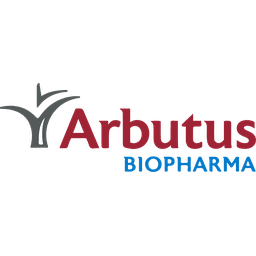
Arbutus: Hunting a Functional Cure for Chronic Hepatitis B Infection
By Mark Terry
May 5, 2023
Arbutus Biopharma, based in Warminster, Penn. is moving closer to achieving its goal of developing a functional cure for hepatitis B and coronavirus infections. Data from its experimental assets are showing promise in tamping down signs of infection.
In a first-quarter 2023 conference call, William Collier, Arbutus’ President and CEO, said the company was “founded with the goal of finding a functional cure for patients with Hepatitis B virus.” He added that “at the onset of the COVID-19 pandemic, we made a strategic decision to expand our focus into treatments for COVID-19 and future coronavirus outbreaks.”

In its quarterly report, Arbutus Biopharma highlighted pipeline updates and key milestones, including data on its Phase IB HBV asset, AB-729. At the Global Hepatitis Summit in April, the company made an oral presentation of additional off-treatment data in the AB-729 study assessing patients who discontinued both the drug and nucleotide analog (NA) therapy. Data showed that seven patients with chronic HBV infections remain off all treatment. Those patients also have continued to maintain low levels of HBV DNA and HBsAg for at least one and half years post- AB-729 treatment.
An RNA interference (RNAi) therapeutic, AB-729 is designed to decrease all HBV viral proteins and antigens, including hepatitis B surface antigen which is believed to be a key requirement to allow the reawakening of a patient’s immune system to respond to the virus. The drug targets hepatocytes using the company’s novel covalently conjugated N-Acetylgalactosamine (GalNAc) delivery technology that allows for subcutaneous delivery.
The company is also evaluating the safety and tolerability of the therapeutic in combination with ongoing NA therapy and short courses of PEG-IFNalpha-2A in 43 patients with chronic HBC infection in a Phase IIa study and expects preliminary data in the second quarter of this year. Arbutus is also evaluating AB-729, NA therapy, and Vaccitech’s HBV antigen-specific immunotherapeutic, VTP-300, in a Phase IIa trial. They are currently enrolling patients and expect preliminary data in the second half of this year.
Additional HBV pipeline drugs include AB-161, which dosed the first patient in a Phase I trial in March, and AB-101, an oral PD-L1 inhibitor. However, in April, the FDA issued a clinical hold on the Investigational New Drug (IND) application for AB-101. As a result, they don’t expect to report initial data from the study as previously scheduled in the second half of this year, Collier said.
In discussing the company’s financials, David C. Hastings, the company’s CFO, said in the conference call, “Our key financial metrics are cash and financial runway.” As of March 31, the company had about $179 million in cash. Due to the clinical hold, Hastings said the company has a “reduced 2023 cash burn guidance from between $95 to $100 million to between $90 to $95 million.” The cash runway will be sufficient to fund company operations into the first quarter of 2025, he added.

Total revenue for the quarter was $6.7 million compared to $12.6 million from the same period the previous year. The drop was primarily related to less revenue from a licensing deal with Qilu compared to the previous year “based on employee labor hours expended by us to perform our manufacturing obligations under the license agreement,” the company stated.
In terms of COVID-19 and the company’s pan-coronavirus programs, in March the company presented preclinical data for AB-343 at the 36th International Conference on Antiviral Research. AB-343 is its lead coronavirus drug candidate, a main protease inhibitor. The antiviral potency, selectivity and favorable pharmacokinetic data support further development as a potential oral treatment for COVID-19 without the need for ritonavir. The company is currently running IND-enabling studies and hopes to launch a Phase I trial in the second half of this year.
The company is also working to identify a nsp12 viral polymerase candidate, as a possible combination therapy with AB-343. It hopes to pick a compound and launch IND-enabling studies in the second half of this year.
Collier said the company is actively advancing its strategy to “identify and develop compounds that target the two essential enzymes required for the coronavirus life cycle.”
Beyond its developmental progress, Arbutus has also been involved in a patent infringement lawsuit related to COVID-19 vaccines. On April 4, Arbutus sued Pfizer and BioNTech in a New Jersey district court. Arbutus alleged Pfizer and BioNTech’s mRNA COVID-19 vaccines infringe on five of Arbutus’ patents. Arbutus and its licensee Genevant Sciences are seeking damages including royalties over the use of their lipid nanoparticle (LNP) delivery tech used in the vaccines.
The company also filed a lawsuit against Modena. However, on April 11, a U.S. appeals court landed on the side of Moderna over the patents for the LNP technology for Moderna’s COVID-19 vaccine. In the case of the appeals win, the appeals court upheld a U.S. Patent and Trademark Office tribunal’s decision that the patent for Arbutus’ LNP tech was invalid because an earlier Arbutus patent disclosed the same invention.
Moderna challenged the PTO’s Patent Trial and Appeal Board in 2018. The board invalidated the patent in 2019. There is another ongoing lawsuit against Moderna over other LNP patents.
“We remain committed to protecting and defending our intellectual property to ensure we are compensated appropriately for the time and resources we devoted to developing our proprietary LNP delivery technology. We have filed suits against Moderna, and now Pfizer and BioNTech. We have no further statements over the litigation at this time,” Collier said.
- About the Author
- Latest Posts
Mark Terry is a freelance writer, editor, novelist and ghostwriter. He holds a degree in microbiology & public health and spent 18 years in infectious disease research and clinical and research genetics prior to his transition to a writing career. His areas of expertise include biotechnology, pharma, clinical diagnostics, and medical practice management. He has written literally thousands of articles, as well as market research reports, white papers, more than 20 books, and many other written materials. He currently lives in Michigan with his family.







